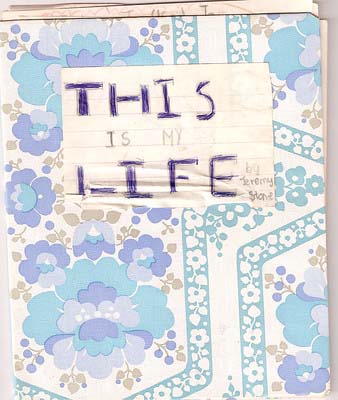What’s My Life Story? The Story I Buy Into Affects My Life

One of the most important questions a person might ask themselves is “What’s my life story?”
Why is that such an important thing? Well, it turns out that the stories we repeat to ourselves have a way of replaying and replaying in our lives. That can be a good thing for us — or something very debilitating.
Some people are surprised at the idea that we each have a life story that we tell to ourselves and quite possibly to others. “I’m not somebody important or famous! I don’t go around ‘telling’ my story!” Yet, the fact is, that in some very important and perhaps surprising ways, we do exactly that.
Recurring Themes and Bedrock Beliefs
Without realizing it, we all fall into the grip of certain key stories, and they can have an immense impact on our lives. We can all recognize some of the themes that appear in our stories, often from very early in our lives. Here are some examples:
- The Hero Child – the one “destined” (or expected) to achieve great things;
- The Victim – the one who always gets (and expects to get) mistreated by life or others;
- The Outsider – the one who, for some reason, never quite “fits in”;
- The “Good” Girl or Boy – the one who is destined (or expected) to be good all the time;
- The “Bad” Boy or Girl – the one who always does “bad” or rebellious things;
- The Caretaker – the one who is destined (or expected) to always take care of others.
You can probably think of people in your life who fit into one of these categories. Or, perhaps you realize that one of these stories governs all or some important part of your life. There are also many other “stories” that we can find governing all or part of our lives.
These stories are important, and they actually have a huge impact on our lives. That can be a very good thing if the stories genuinely reflect who we really are. In that case, they can help give our lives value and meaning.
In the words of the famous narrative therapist Michael White:
The most powerful therapeutic process I know is to contribute to rich story development.
While Jungian and /a-midlife-transitions might have a somewhat different understanding of “story” than White does, the above statement is profoundly true!
The Power of Hidden Stories
What are your hidden stories? The “narratives” that form and shape your life? As Jungian Gary Trosclair tells us,
One of the fundamental tasks we need to accomplish in therapy is to step back from the isolated details of our lives and get a sense of the larger picture, the patterns and themes that comprise our stories and to some extent define our lives. [T]hese stories … lead to our fundamental beliefs about who we are, how the world operates … and what will make life fulfilling for us…. Bad stories make us sick and good stories heal [Italics mine].
If we diligently ask, “What’s my life story?”, we can make conscious stories that are the real engines behind our lives, understand them, and see how they make us feel and act. If the story lines up with a good self-compassionate assessment of who we really are, we can see how it strengthens our sense of ourselves, reduces anxiety, and empowers us to walk into our lives in a good way. If it doesn’t support us, we can begin the search for better, more fulfilling stories.
If we remain unconscious of our stories, they retain a power over our lives that can be shocking in its effects. Often, the really powerful stories in our lives start to appear before we’re old enough to consciously make choices. These stories can give us extremely powerful messages about who we are, and what we can expect for our lives.
Example. C. is the daughter of parents of humble backgrounds who immigrated to Canada slightly before she was born. Her parents made enormous sacrifices for their children, and lived lives that were almost totally oriented to “the kids’ future”. On some level C. felt an enormous pressure to succeed. She worked furiously, and excelled at academics, got a full scholarship to university, attended a fine U.S. medical school, and went on to become a well respected orthopedic surgeon. At 46 years of age, she asks “Is any of this really what I wanted? Who am I, anyway?”
“What’s my life story?” is a hugely important question, and the answer to it can make all the difference in the level of fulfillment and self-acceptance I find in my life.
In the second part of this post, “Getting to the Real Story”, we’ll look at some of the important ways in which we can start to get nearer to our real story, and further our journey towards wholeness.
